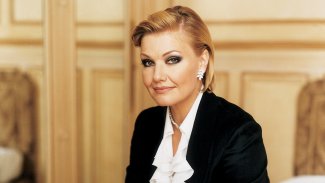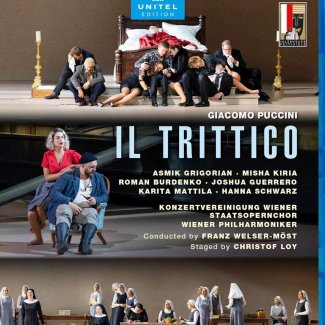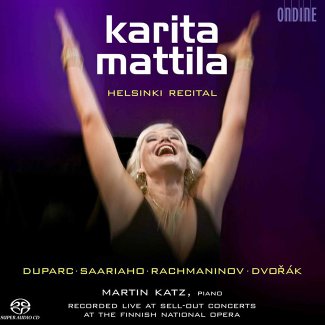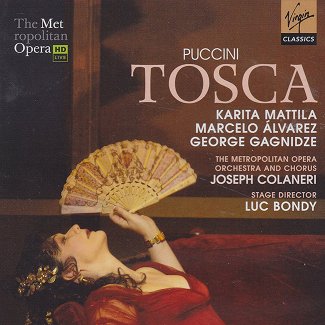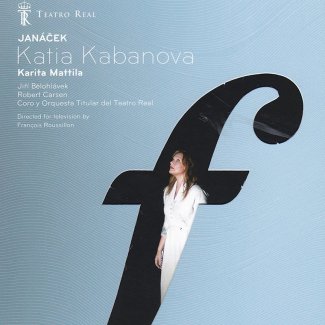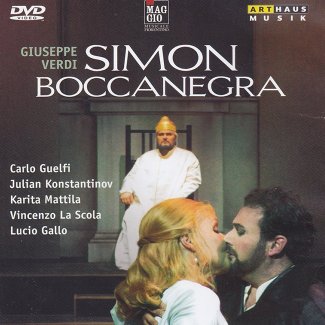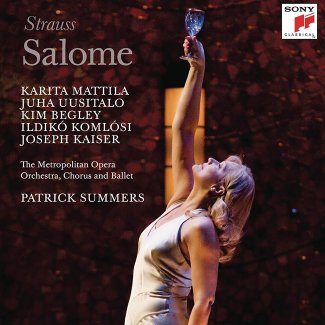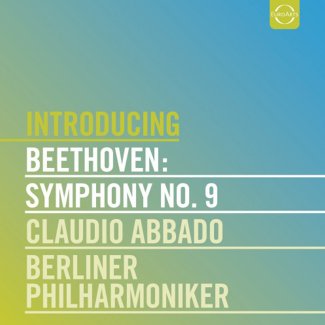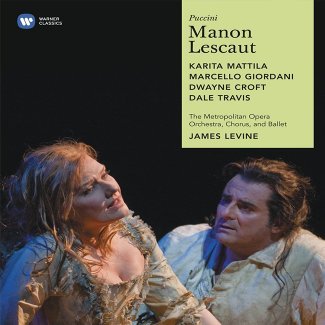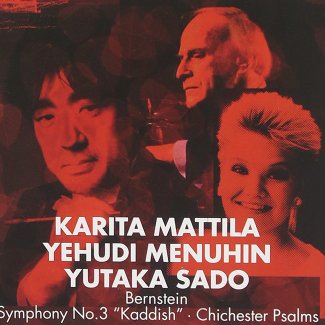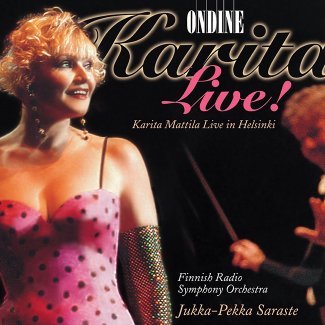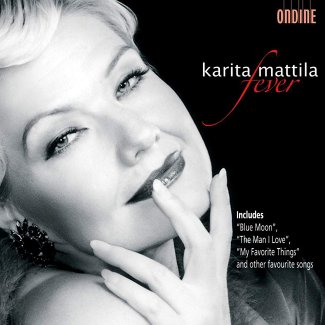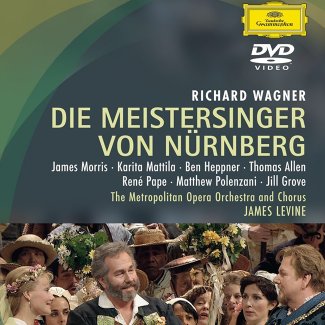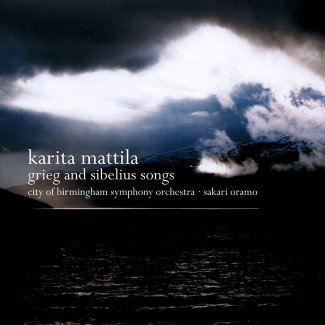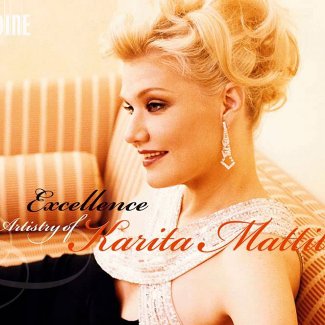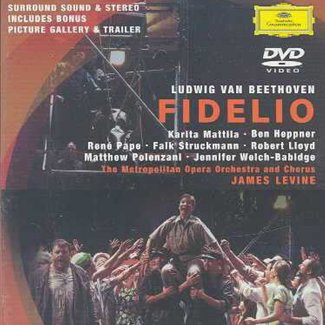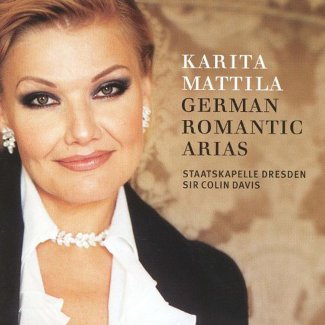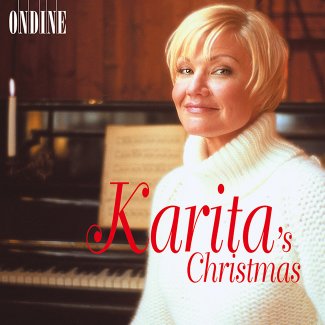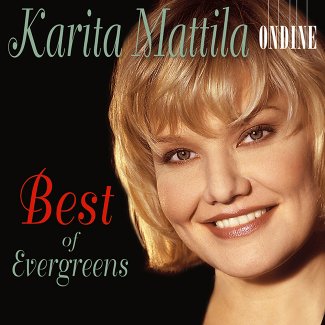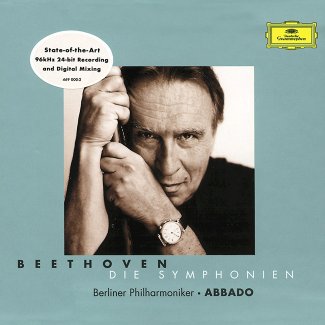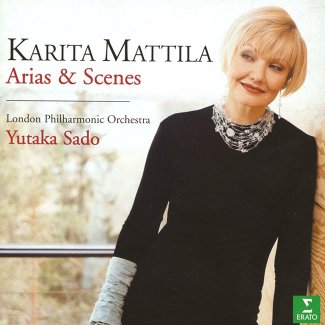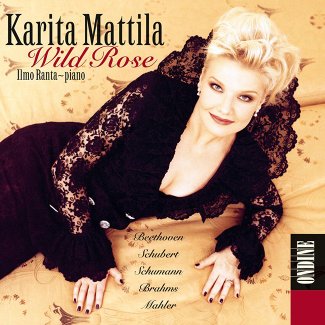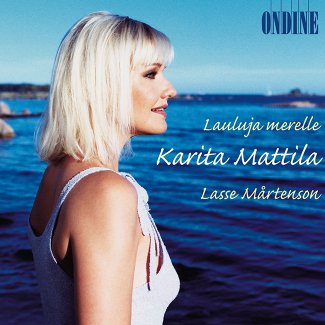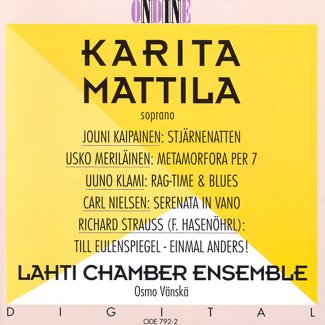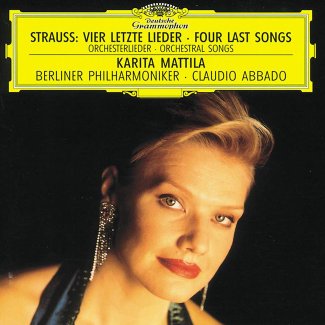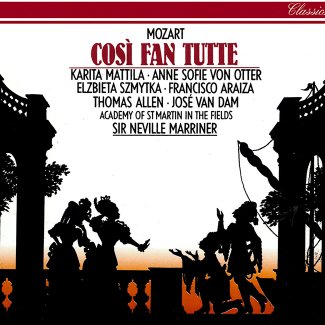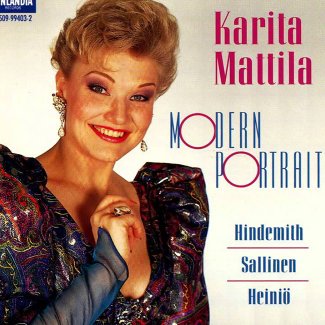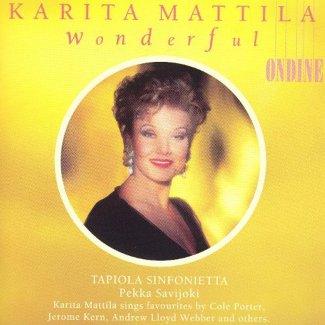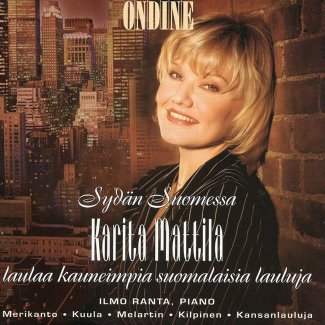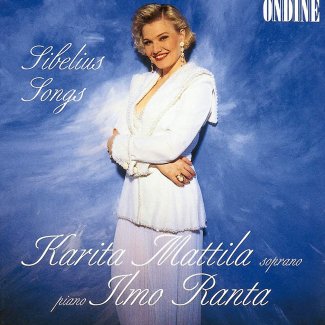
Karita Mattila
“Mattila is unquestionably glorious…that engulfing sound still hits you in the solar plexus.”
(Tim Ashley, The Guardian)
Karita Mattila’s lyric vocal beauty and her innate sense of theatre continue to set her apart as one of the most revered operatic sopranos in the world today with a career spanning 40 years.
In the current season, Ms Mattila reprises the role of Kostelnička (Jenůfa) both at Royal Opera House, Covent Garden in Claus Guth’s production, conducted by Jakub Hruša, and at National Theatre Prague under Music Director Robert Jindra – following a special Gala concert in Savonlinna last season. She also reprises the role of La zia Principessa both at Opéra national de Paris under Carlo Rizzi, in Christof Loy’s production, and for her debut appearances with ABAO Asociación Bilbaína de Amigos de la Ópera under Pedro Halffter. Her season concludes with an anticipated return to the Gran Teatre del Liceu as the Foreign Princess in Christof Loy’s Rusalka under Josep Pons.
See more
New roles have dominated Mattila’s recent appearances including acclaimed performances as Herodias (Salome) in Lydia Steier’s new production for Opéra National de Paris under Simone Young; for the Canadian Opera Company under Johannes Debus; and for Houston Grand Opera under Keri-Lynn Wilson in Francisco Negrin’s production; and she made her acclaimed debut as Strauss’ Klytämnestra (Elektra) at the Deutsche Opera, Berlin and last season at Royal Opera House, Covent Garden in Christof Loy’s new production, conducted by Antonio Pappano. Other recent outstanding performances include a triumphant return to the Salzburg Festival as La zia principessa (Suor Angelica) in another Christof Loy new staging and conducted by Franz Welser-Möst; Poulenc’s La voix humaine staged especially for her by Finnish National Opera under Dalia Stasevaska, and in Glaus Guth’s award-winning production of Jenůfa for The Royal Opera, Covent Garden – all of which were internationally streamed and broadcast. Last season she made debuts at Teatro dell’Opera di Roma under Juraj Valčuha singing Kostelnička, and at home in Finland, she made her operatic debut at the Savonlinna Festival as Ortrud (Lohengrin).
Mattila has won numerous awards throughout a distinguished career and received the Order of the Lion of Finland, First Class Commander in 2020. Her other notable awards include Musical America’s Musician of the Year and the Chevalier des Arts et des Lettres, and the 2016 Royal Philharmonic Society Award for her “unforgettable incarnations of both Kostelnička and Emilia Marty”, the latter a role she bid a glorious farewell to at Opéra National de Paris last season in Krzysztof Warlikowski’s production, conducted by Susanna Mälkki.
In addition to two Grammy Awards for Best Opera Recording – Die Meistersinger von Nürnberg under Sir George Solti (1998) and Jenůfa under Bernard Haitink (2004) – she has many recordings to her credit, highlights of which include Strauss’ Vier letzte Lieder under Claudio Abbado (Deutsche Grammophon); and her 40th birthday concert in front of an audience of 12,000 in Helsinki (Ondine).
A native of Finland, Mattila trained at the Sibelius Academy in Helsinki with Liisa Linko-Malmio, and subsequently with Vera Rózsa with whom she studied for almost 20 years. Mattila’s own experience is now highly sought-after and recent invitations to give masterclasses include at the Peabody Institute of The Johns Hopkins University, Lauluakatemia, Helsinki and The Birgit Nilsson Museum, and in 2024 at Wigmore Hall, London in collaboration with the Sibelius Academy in Helsinki and Keval Shah, and at Savonlinna Music Academy.
Contacts
Ian Stones
Alice Jones
General Management
Gallery
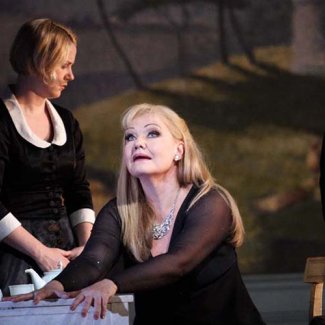
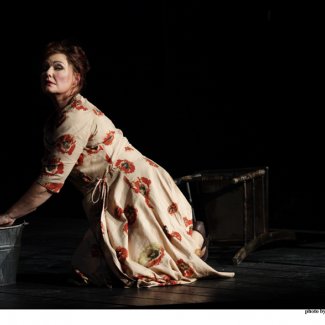
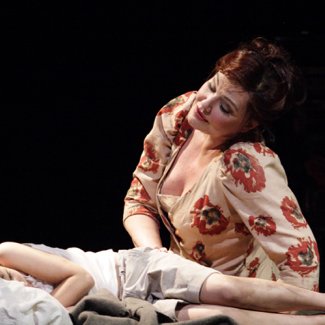
Season Highlights
Gran Theatre del Liceu
Show more about Gran Theatre del Liceu
Rusalka (Foreign Princess)
Opera de Paris
Show more about Opera de Paris
Suor Angelica (Zia Principessa)
“Karita Mattila’s Kostelnička is the real driving force, filling the space with pulsating torment as she blurs the line between affection and cruelty.”
“Karita Mattila … has returned even more emotionally intense now than before. Giving everything she has to the role, she movingly pours love over Jenůfa, pleads heart-rendingly with Števa to marry Jenůfa and, after the murder of the child, seems to be hurtling to the limits of sanity. Few singers of the role embrace such a wide range of feelings and she can be forgiven some touches of melodrama”
“…her voice and poise tend to dominate any stage she inhabits…it was a measured, even restrained performance, and stronger because of it, giving her character a steely quality and her voice an icy edge. And Mattila remains unmatched in intensity…” -
“Karita Mattila embodied an intense Kostelnicka, shining both vocally, with impeccable tonal quality and stylistic precision, and acting, with an energy that made her descent into desperation palpable.”
“The Finnish soprano Karita Mattila was no exception in the role of the sacristan (Kostelnička), the key character of the entire drama. The singer’s performance in this case too was excellent on both a musical and theatrical level and her complex and realistic interpretation of Jenůfa’s tormented adoptive mother certainly left its mark on her.”
“She… brings home a memorable interpretation and receives unanimous applause at the end: completely in the role, master of the stage, able to keep the entire theatre in suspense in the key moments of the second and third acts.”
“Another masterful performance is that of the sacristan Kostelnička, entrusted to the great Karita Mattila… The Finnish soprano governs with confidence in the wide leaps of register (her threads suspended at the top are sweet) and with superb acting ability between the severity of parental duty, the concern for the fate of a physically and morally scarred daughter, the desperate decision in which, like an evil witch, she drugs the unaware Jenůfa and kills her illegitimate fruit in the frozen waters of the stream.”
“To cast Karita Mattila as the Princess was an inspired choice; Mattila snarls and purrs in full ice-queen malevolence and this Angelica”
“To cast Karita Mattila as the Princess was an inspired choice; Mattila snarls and purrs in full ice-queen malevolence and this Angelica – as we’ve suspected she might ever since we saw her incarnated as Lauretta two operas earlier – reacts with startling anger, before turning her violence inwards on herself.”
“Karita Mattila’s fur-clad Foreign Princess looks sensational and she sings and acts the treacherous (in all senses) role with admirable aplomb.”
“Was formidably intense and utterly commanding.”
“Karita Mattila, a singer who has given unforgettable moments.”
“…this felt like one of those performances that operagoers will be talking about two decades from now: charismatic, proud and with that formidable soprano still burning with magnesium brilliance. But Mattila is also capable of a terrible, vulnerable softness, both vocally and dramatically…”
“The Kostelnička of Karita Mattila, one of the great singing actresses of our time, is an overpowering creation … Mattila’s voice … packs an emotional punch that takes you into the heart of her dilemma.”
“[as the Foreign Princess] Karita Matilla commanded the stage with savage beauty.”
“Finnish soprano Karita Mattila [gave] a fascinating dramatic portrait of remarkable textual and musical subtlety [as Ortrud]”
“Karita Mattila, in her first Madame de Croissy, was properly terrifying in her death agonies”
“Karita Mattila sounded (and looked) ever-young, ever-agile as the kittenish Foreign Princess.”
“…Ms. Mattila’s steely prioress can’t help succumbing to Blanche’s touching combination of fragility and determination…Facing the end, Ms. Mattila made her character at once terrifying and a sad wreck of a woman.”
“Karita Mattila’s fierce, iconoclastic take on the elderly, ill Prioress …was wracked with horrific pain from her first appearance…Then, as the Prioress lost control, Mattila unleashed her dramatic soprano in giant waves of steely sound.”
“Karita Mattila oozed glamour as the deified former empress Plotina, acting up a storm and singing with still lovely tone.”
“Karita Mattila: a force of nature impossible to resist…there’s no denying that Karita Mattila socks it to an audience through a star quality all too rare on the classical scene today…she can still sing softly to generate a warm tonal glow and at the climaxes above the stave she raises the rafters without a hint of vibrato or tremolo. Even more impressive than this is her commitment: whether it’s exuberant gypsy songs by Brahms or the slyly deductive cabaret number by Friedrich Holländer, she inhabits what she sings, making it vivid, real, immediate, personal.”
“Karita Mattila swept on to the Wigmore Hall platform and scooped the audience into the palm of her hand for two hours. In part, that’s because the soprano is such a fabulous and fearlessly direct stage performer…Fundamentally, though, it’s about the rich nuance of her vocal sound, which still ranges from the full-on operatic to the intimate, all delivered with a laser-sharp awareness of both text and context.”
“Her identification with the character is almost frighteningly complete. She sings with a rapture that borders on recklessness.”
“Mattila was something else, somewhere else. At an age when most sopranos are fading, she is basking in an Indian summer, and like her legendary predecessor Leonie Rysanek, she holds nothing back. This Sieglinde radiated a quality of ecstatic incandescent abandon that went way beyond mere vocalising – she was simply a woman who needed to be freed from misery, a woman who needed to give herself up to love. Kaufmann sang the music marvellously: but it was Mattila who found the heart of the drama and lived in it.”
“The requisite atmosphere was only one virtue of the incandescent production of Jenůfa that welcomed back Karita Mattila to San Francisco as the Kostelnička, a new role which the Finnish soprano added to her repertory in a now-legendary London concert performance in April. Mattila’s interpretation of the title role has been acclaimed for decades; her stage debut as the stepmother whose agonized act of infanticide propels this 1904 music drama dominated the performance…her soprano remains blessedly even and expressive throughout its range.”
“She was every bit the femme fatale. But for every hip-swagger there was a shrug of apathy: a glimpse of the emotional corpse that Marty has become. Delivered in characteristically full and fearless voice, her interpretation alone would have justified this performance.”
“Karita Mattila was Emilia Marty, quite literally…she incarnated every aspect – glamour and charm, wiles and caprices, cynicism and compassion – of this mercurial character. And this wasn’t mere histrionic posturing: her singing was gloriously rich and expressive.”
“Emilia Marty is a role that Mattila has very much made her own in recent years, and it’s hard to imagine it sung more beautifully or with greater opulence of tone…Yet Mattila’s characterisation also runs gloriously deep…The closing scene, in which Marty finally finds emotional release in acceptance of her own mortality, was realised in an engulfing flood of sound that took one’s breath away.”
“Whether we knew it or not, the operatic world has been waiting all this time for Karita Mattila to sing the role Kostelnicka…She finally did so at the San Francisco Opera and the results were even more intense and brilliant than we could have hoped…there was no mistaking that the focus of attention was on Mattila, in a performance of unforgettable theatrical intensity and vocal brilliance…With Mattila, there are no compromises…her vocal endowments are, if anything, more opulent and finely honed than ever. Throughout the opera, and especially during Kostelnicka’s climactic moral crisis at the heart of Act 2, Mattila unleashed great torrents of sound – now burnished to an extraordinary lyrical sheen for moments of introspection, now pouring forth in a practically unhinged expression of psychic anguish. And as a singing actor, Mattila is nonpareil. The combination of provincial rectitude and maternal tenderness that make Kostelnicka such a tricky character to embody onstage shone through with telling clarity in her performance…One way or another, everything in this production works perfectly – and Mattila’s exquisite performance most perfectly of all.”
“Karita Mattila, grabbing the Kostelnička irresistibly by the throat…Mattila’s voice, as always both imposing and intriguingly diffuse”
“Mattila is among the greatest contemporary exponents of Jenufa — which she sang at Covent Garden in 2001 — so she has chosen a good time to make the transition to the other title role. Now 55, she looks the part of the staunch matriarch, yet her voice is still in prime condition, a big lyric soprano with a penetrating edge to it. She sings Kostelnička’s notes more beautifully — and accurately — than any other soprano I have heard live (more than 40)… She will take the role into her stage repertory, first in June in San Francisco, later in Munich and at the Met. Let’s hope the Royal Opera has joined the queue.”
“Formidable Mattila is devastating as the Kostelnička…the voice itself, engulfing in it beauty and power, sounds devastating in this music, and the great scenes were wonderfully realised.”
“Dominating it in every way was Finnish star soprano Karita Mattila…She threw herself into the role [of Kostelnička] with the recklessness that only a great artist can manage. She was every inch the iron matriarch…Mattila was the glowing centre of [this] performance”
“they were all dwarfed next to the phenomenon that was Karita Mattila’s Kostelnička”
“Karita Mattila was sounding at her incandescent best”
“Karita Mattila as her stepmother delivered a performance of raw emotion tipping over into madness.”
“Karita Mattila, as Ariadne…returned to [the role] with complete confidence…there’s a compelling intensity to the portrayal, a moving commitment that’s impossible to resist…but the power [of her voice] – in terms of both expressiveness and decibels – feels undimmed.”
“Mattila is unquestionably glorious…that engulfing sound still hits you in the solar plexus. Her singing is wonderfully controlled yet abandoned in expression, trawling Strauss’s emotional extremes with an utterly compelling immediacy. Ever the theatrical animal, she turns the Prima Donna of the Prologue into a real monster sacré, before taking us with her every step of the way on Ariadne’s journey from grief to sensual renewal in the second half.”
“Mattila’s unflagging intensity and emotional generosity were absolutely gripping…Her performances were expertly paced with an intelligent narrative arc, dreamy without sacrificing expressive clarity. Mattila sang with a great commitment to character, painting detailed psychological portraits.”
“Karita Mattila, in her role debut as Sieglinde…sang with thrilling richness and steadiness. Her soprano soared with ease in Sieglinde’s ecstatic outpourings”
“[Mattila] sounds ravishing throughout her ordeal…A high-powered actress who takes the stage just by stepping onto it, Mattila’s unfailing in her commitment and electric presence. She’s the best part of the this show.”



